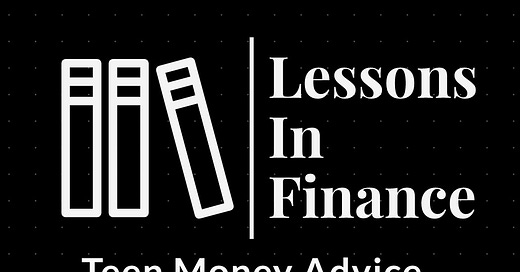Ah, April, that beautiful time of year when the snow melts away and things are supposed to warm up.
April is also tax season for Canadians. With that in mind, this lesson in finance will examine income taxes from a teenage perspective.
For the 2023 tax year, the basic personal tax exemption will be increased to $15,000. If you earn under this amount, then you don’t have to pay federal income taxes. Some employers, however, will deduct income taxes from students’ paycheques if the gross pay they earn, pro-rated for the year, is greater than the exemption limit. Many students who only work during the summer months are in this situation.
If, for example, a student earns $2,000 a month during July and August — but does not work the rest of the year — their employer will deduct income taxes from their paycheque even though they are earning below the exemption limit. To the employer, the student’s monthly earnings equate to $24,000 (12 months times $2,000). This amount is above the exemption limit, and therefore tax is deducted.
If a student, or anyone for that matter, doesn’t want any income tax deducted, they can give their employer a downloadable TD1 form indicating that their total annual income from all sources will be less than the current basic exemption limit.
By doing this, students can get all of the money they have earned right away, rather than having to wait for it in the form of a tax refund. If you are earning under the exemption limit, there is no point letting the government hold your money — they don’t pay interest on it. Get it in your hands so you can use it, following the financial lessons you already learned.
Listen to the Lesson:
Even if you don’t owe taxes to the government, you should still file a tax return. The federal and provincial governments offer some refundable tax credits, which can be payable even if you have little or no earnings. These credits are always changing, and you may not qualify, but you will never get them unless you file. If you are 18 and older, you can apply for the HST tax credit: this is money that the government sends you directly as compensation for all the HST you have been paying as a person with a low income. You must be 19 to receive the credit, but if you will turn 19 before April 1 of the following year, you can apply now to get your first HST payment as soon as possible after you turn 19.
Perhaps the biggest reason to start filing your tax return now is to create or update your Registered Retirement Savings Plan (RRSP) contribution limit. A retirement savings plan might not mean that much to you right now in your teens, but it soon will. When you do earn over the exemption limit, you will have to pay income taxes based upon the income earned. RRSP contributions allow you deduct the amount of your contribution from your taxable income.
For example, if you are making $50,000 a year, but are able to contribute $4,000 to an RRSP, only the $46,000 will be taxed in the current year (the $4,000 will be taxed at a lower rate when you retire and withdraw it from your RRSP). The amount you can contribute and reduce your taxes by is set by your RRSP contribution limit. This limit is first set and adjusted upward based upon the income that you report when you file your taxes. Now you can see why you want to build this amount as soon as possible — many Canadians love this immediate tax savings, but are unable to take full advantage. They have a low contribution limit because they didn’t start filing a tax return to report their income when they were younger. Start filing now, and this won’t happen to you.
Keep reading with a 7-day free trial
Subscribe to The Latest is a JUSTCAWS to keep reading this post and get 7 days of free access to the full post archives.





